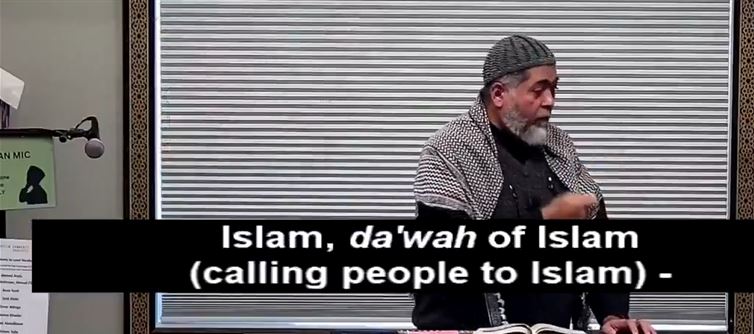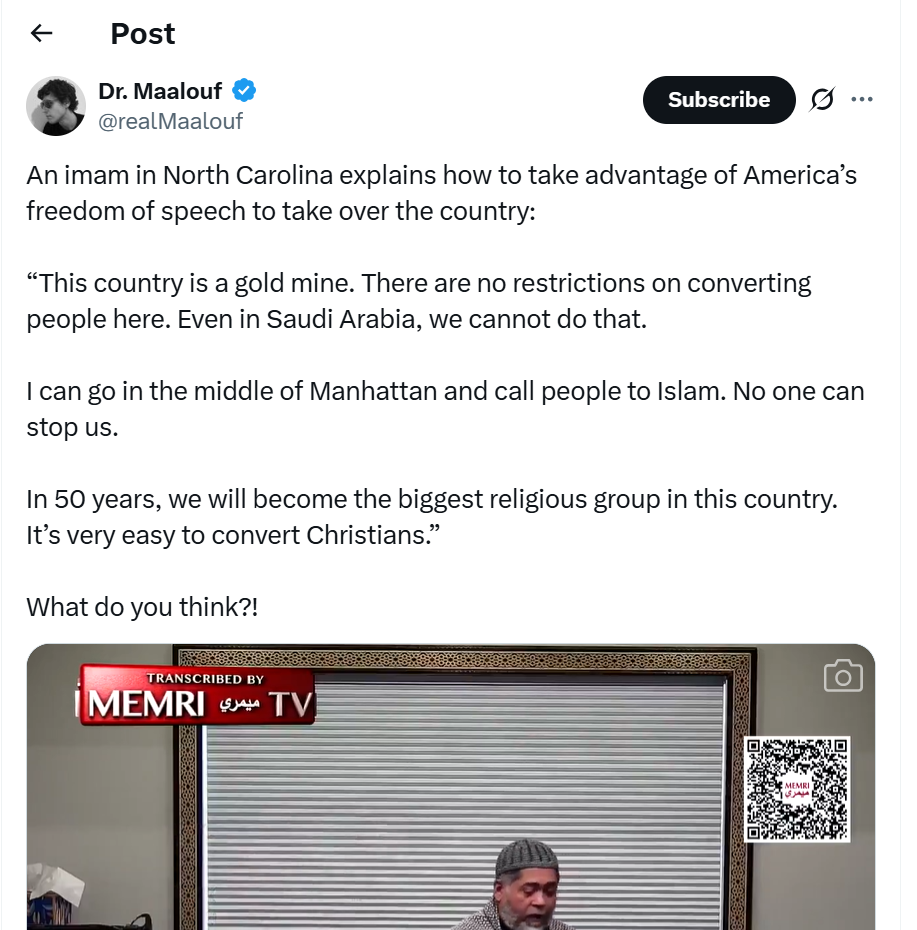
Such declarations inevitably stir debate, especially when framed in terms of long-term religious dominance or transformation. For many Americans, religious freedom is meant to ensure peaceful coexistence among diverse belief systems—not as a tool for dominance. However, religious growth through peaceful conversion is not illegal or inherently threatening under U.S. law. The idea that islam or any religion might grow significantly over time simply through voluntary conversion is part of the democratic process. Yet, when these ideas are expressed in triumphalist or strategic language, they can fuel suspicion and deepen cultural divides.
 Ultimately, the imam's comments highlight the paradox of liberal freedoms: they allow space for all voices, even those who seek to reshape society according to their own values. For some, this is the strength of pluralism; for others, it's a vulnerability. The challenge lies in maintaining open dialogue and mutual respect while safeguarding the pluralistic ideals that define American democracy. Provocative or not, such statements must be interpreted carefully, ensuring that the right to religious advocacy does not morph into rhetoric that alienates or antagonizes others.
Ultimately, the imam's comments highlight the paradox of liberal freedoms: they allow space for all voices, even those who seek to reshape society according to their own values. For some, this is the strength of pluralism; for others, it's a vulnerability. The challenge lies in maintaining open dialogue and mutual respect while safeguarding the pluralistic ideals that define American democracy. Provocative or not, such statements must be interpreted carefully, ensuring that the right to religious advocacy does not morph into rhetoric that alienates or antagonizes others.




 click and follow Indiaherald WhatsApp channel
click and follow Indiaherald WhatsApp channel